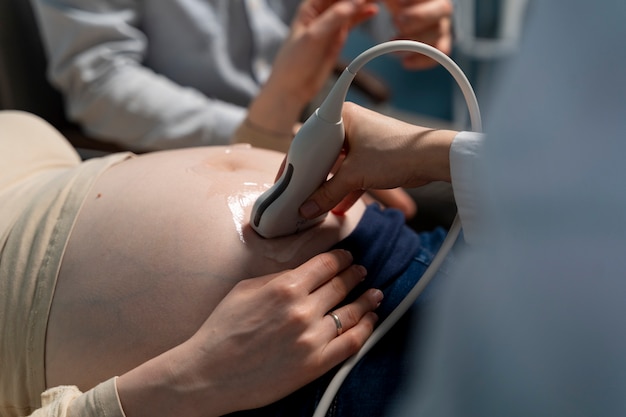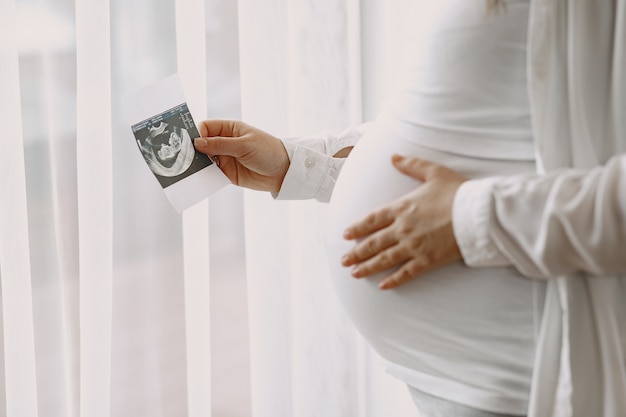Beyond Dawlish
"Am I pregnant?" is the most common question. "
It's no secret that those two pink lines, or the lack thereof, can change your life. A pregnancy test can be the first step on an emotional roller coaster, whether you are anxiously praying for a positive result or desperately hoping for a negative.
If you're Googling "How do pregnancy tests work?"—you’re not alone. And if you're also trying to find free pregnancy tests, we’ll talk about that too. Let's first examine the science behind the little stick you keep in your bathroom. We will also discuss myths and "what-ifs" scenarios.

What is a pregnancy test?
Imagine a pregnancy check as the tiny detective of your body. Its job? Its job? The hormone begins to appear in the body soon after an egg has attached itself to your uterus.
What's this? You'll be surprised! It can happen as soon as six days after fertilisation.
Simple, not scary: The Science Behind It
Here's the story behind what happens. The stick reacts when you pee (or dip into your urine). The test will show a positive if hCG has been detected. If not, you get a negative.
That's it. No blood, no needles. Hormone chemistry is all that's needed.
What is hCG? Why does it matter?
hCG is the best pregnancy test. The placenta produces this hormone (and it begins working very early). The hCG level increases rapidly during the first weeks. It doubles every 48-72 hours. This is why pregnancy tests work better a few weeks after missing a period.
Types of pregnancy tests
All tests are not created equal. This is the breakdown.
1. Urine Tests at Home
You can buy them at any drugstore. Easy, quick, and discreet.
2. Blood tests (at a clinic)
More accurate and sensitive. Can detect early pregnancy, before even a missed cycle.

When Can I Take A Pregnancy Test
The best results are achieved when you miss your period.
Why? Why?
Are pregnancy tests accurate?
When used properly, home pregnancy tests can be 99 per cent accurate. Here's the problem: user error and timing can all affect the results.
Do you want the best possible result? Test in the morning.
False positives: Is it possible for a test to be wrong?
Yes--though it's rare.
You might get a false positive due to:
- Recent abortion or miscarriage
- Some fertility drugs
- Conditions medicales (such as ovarian cysts).
If you are unsure and seeing positive results, you should consult a physician.
False negatives: It is too early to know
Even if pregnant, you may test too soon and receive a negative answer.
Why this occurs:
- Tests before detectable hCG levels
- Urine that is diluted (after drinking tons of water).
- Tests that are expired or defective
The Evaporation Lines That Will Make You Scratch Your Head
Have you ever seen a ghostly, faint line on a pregnancy test and wondered, "Am I pregnant, or is the test teasing me?"
Welcome to the world of Evaporation Lines, those sneaky streaks that appear when you leave the test for too long. You should always read the test in the specified time frame (usually between 3-5 minutes).
Regular Tests vs. Digital: Which is better? Regular vs. Digital Tests: Which is better?
Both digital and analog tests detect hCG in the same manner.
What's the difference? The digital tests eliminate the need to guess when interpreting lines.
How many times should you test?
If you are still uncertain, repeat the test in 2 to 3 days. The hCG level doubles quickly so you can wait a little to get a better answer.
Where can you get free pregnancy tests?
The good news is that many community health centres and clinics for pregnancy resources offer FREE pregnancy tests. Search online or in local clinics for confidential and free testing.
What To Do If You Get A Positive Test
First, breathe. Then:
- You can confirm your results by taking a second sample.
- You can book an appointment at a clinic or with your doctor
- Explore your support network and options.
It's a huge deal, whether you planned it or not. Understanding what's next is important.
How to proceed if you are negative but still feel pregnant
Your body is a very intelligent organ. You can test again if you still experience pregnancy symptoms, such as nausea, fatigue or sore breasts, even if your test was negative.
Still confused? You should see your healthcare provider.
Use Pregnancy Testing the Right Way
Checklist for Quick Reference
- Please read the instructions (yes, each brand is a bit different).
- First-morning urine
- Don't drink excessive fluids beforehand
- Set the timer and don't guesstimate
Following the basic rules is the first step to accuracy.

Common Myths about Pregnancy Testing--Busted
Clear the air
- False: "You cannot get pregnant during your period." Although rare, it is possible.
- All tests are identical Not quite. Others are more sensitive than others.
- A faint line does not mean that you are pregnant Nope. Lines are lines. You're likely pregnant.
When Should You Visit a Clinic or a Doctor?
It's always good to get professional help, whether it is to discuss the next steps or confirm results. A pregnancy centre can walk you through your options, answer questions, and offer resources--judgment-free.
Conclusion: Knowledge Is Power (and Peace of Mind)
The impact of pregnancy tests is huge. You can avoid confusion and save money by understanding how pregnancy tests work. Knowing the facts can help you control your health, whether you are trying to get pregnant, concerned about an unexpected event, or simply curious.
And if you're unsure where to start, consider reaching out to a pregnancy centre near you. They’re there to help—no strings attached.
FAQs
1. Can you take a pregnancy test at night?
Yes, but for the most accurate results, test in the morning when your urine is most concentrated.
2. How soon will a pregnancy test show positive?
Most tests detect pregnancy about 10–14 days after conception, usually right after a missed period.
3. Can stress delay your period and affect the test?
Stress can delay ovulation, which might delay your period—but it doesn’t affect the hCG hormone or the test's accuracy.
4. How do I know if I used the pregnancy test correctly?
Follow the instructions closely, use first-morning urine, and don’t read the test too late. If unsure, test again.
5. Are free pregnancy tests reliable?
Absolutely. Many free tests offered by clinics are the same as store-bought ones and are just as accurate when used properly.




